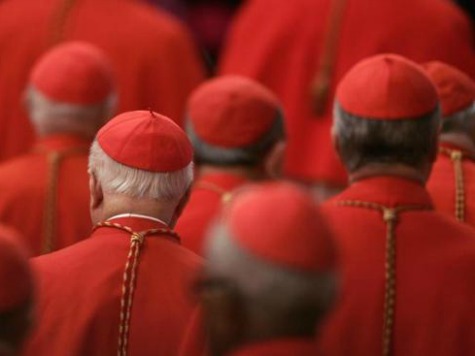Cardinal Walter Kasper has suggested that the African bishops participating in the Vatican summit on marriage have their own problems, but “they should not tell us too much what we have to do.”
In an interview with Zenit News Agency yesterday, Kasper said that “Africa is totally different from the West.” Referring especially to the topic of gays, Kasper said, “You can’t speak about this with Africans and people of Muslim countries. It’s not possible. It’s a taboo.”
Asked whether the African bishops are being listened to, Kasper replied, “In Africa, of course, where it’s a taboo.” And he added that “the questions of Africa we cannot solve.”
Reactions to Kasper’s remarks came fast and furious, and included accusations of racism and xenophobia, and demands that the German cardinal apologize for his dismissive remarks about African bishops.
Liberal publications have rushed to Kasper’s defense. Commonweal, for instance, declares, “No, Cardinal Kasper in not a Racist,” in a headline early on Thursday.
Unfortunately, this isn’t the first time that Kasper’s comments have raised the specter of racism. In 2010 the cardinal was quoted in the German magazine Focus that “when you land at Heathrow you think at times you have landed in a Third World country.” His comments were widely understood to refer to the multiracial composition one encounters at the London airport.
At the time, Kasper’s personal secretary, Monsignor Oliver Lahl, had to explain that “there was nothing racist or xenophobic” in the Cardinal’s comment. “All he was saying is that when you arrive in Britain today it is like landing in Islamabad, Mumbai and Kinshasa all at the same time,” Lahl clarified.
Other commentators on the synod have suggested that Kasper may have the issue backwards. Rather than ignore the Africans, the synod fathers should be paying more, not less, attention to places where the Church is growing fastest.
The Africans found their concerns largely sidelined in a recent text purporting to represent the discussions in the synod hall.
Cardinal Timothy Dolan of New York, for example, has emphasized the importance of the African bishops in the synod. “The bishops of Africa,” he said, “are prophetic in reminding us that the role of the Church is to transform the culture, not to be transformed by the culture.”
Dolan also said that in the West we are tempted to say that the Church ought to water down its teaching, since it’s not popular. “And the Africans say, ‘Well, you know what? We’re not supposed to be. What we’re supposed to do is propose the truth and invite people by the love and the joy of our lives to embrace the truth. And take it from us, brothers, it works.'”
The African bishops themselves seem concerned about the West’s cultural imperialism.
Bishop Joseph Mukasa Zuza of Malawi, for instance, told reporters he is worried about some Western influences in his country, and the pressure brought to bear by groups promoting gay marriage. “In Malawi, these organizations are using money to influence young people to promote same-sex unions,” Bishop Zuza says.
According to the Bishop, some organizations in Malawi are using money to entice mostly poor young people to adopt un-African lifestyles and unions at the expense of marriage between a man and a woman.
Commentators have noted that Africa’s problems are real, affecting millions of people, and should not be cavalierly dismissed.
Issues such as arranged marriages, extreme poverty, lack of access to health care and education, civil wars, foreign aid with ideological strings attached, Islamic extremism and religious persecution, some suggest, are every bit as important as the first-world problems of same-sex marriage and communion for the divorced and remarried.

COMMENTS
Please let us know if you're having issues with commenting.